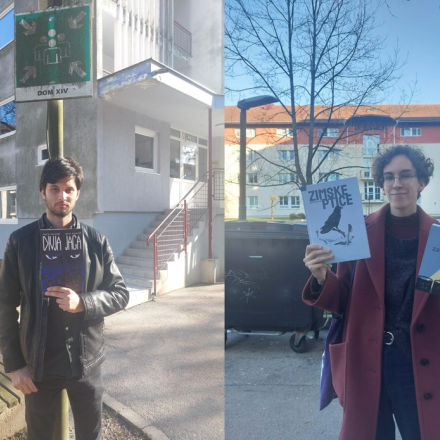Legal Statement on investment protection and ISDS in TTIP and CETA
Legal Statement on investment protection and investor-state dispute settlement mechanisms in TTIP and CETA
October 2016
As members of the European legal community, we demand not to include investment protection and investor-state dispute settlement (ISDS) mechanisms in either the Transatlantic Trade and Investment Partnership (TTIP) between the US and the European Union or in the Comprehensive Economic and Trade Agreement (CETA) between the European Union and Canada, for the following reasons:
Investment protection and ISDS establish privileges for foreign investors based on vague substantive standards
Investment protection and ISDS give foreign investors substantive and procedural privileges in relation to all other actors in a society.
The substantive investment protection standards such as fair and equitable treatment and protection against indirect expropriation without compensation have been interpreted in a broad sense, partly due to vague treaty formulations. Some standards are highly disputed since they might cover situations in which legitimate public welfare regulations result in the payment of compensation to foreign investors. ISDS provisions let investors call on an arbitration panel composed of three arbitrators to invoke these substantive rights and scrutinize any political, administrative or judicial decision that affects their businesses. Investors can thereby hold the state liable for their lost profits, even if the state’s measures are non-discriminatory, lawful from a domestic perspective and designed e.g. to protect the environment, public health or workers’ rights, to renationalize railways, water or energy supply or healthcare systems.
Foreign investors are provided with these privileges without being subjected to any binding and actionable responsibilities in return which could be invoked by the state or those affected by the investment.
Investment protection and ISDS threaten regulation in the public interest, democratic change and state budgets
Investment protection constitutes a subtle shift of power towards individual and already influential commercial actors as it weakens the consideration of public interests and restricts democratic change. In light of the large stock and flows of transatlantic investment, introducing foreign investment protection in TTIP and CETA will potentially lead to a large number of investor-state claims and subsequently to high legal fees and billions of damages paid out of public budgets. This could in turn lead to a regulatory chill, as governments might refrain from regulatory measures in the public interest due to the threat of investment arbitration and the high damages it entails. Under existing treaties, investors have used this leverage to effectively interfere in democratic policy 2 changes. This problem is not to be underestimated, as poor and wealthy countries alike have proven to be susceptible to this pressure.
ISDS is systemically biased and lacks rule of law safeguards
The current ISDS system lacks safeguards for ensuring independence and impartiality, two crucial pillars of the rule of law: arbitrators are paid per case and claims can only be submitted by investors. This creates a systemic incentive to interpret the law in favour of the investor. This systemic bias is especially worrying as arbitrators enjoy a much wider discretion than domestic judges on every level of the dispute settlement process: from the admission of claims and other procedural aspects to the application of vaguely formulated substantive standards and the assessment of adequate compensation.
The European Commission’s latest proposal offers no cure for these fundamental flaws
The Commission’s proposal for an investment chapter in TTIP (dated November 2015) and the CETA text does little to address these fundamental flaws of international investment law. They would essentially provide investors with the same substantive privileges and give wide discretion in determining the proportionality of state measures in that very context. On the one hand, they fail to address the vague substantive standards in an effective manner. Even though the new proposals on substantive standards attempt to address existing problems of broad interpretation, they leave alarming loopholes. Most importantly, they fail to limit substantive protection to non-discrimination only. They still contain standards such as FET and protection against indirect expropriation which afford substantive privileges to foreign investors. Offering only non-discrimination protection to foreign investors would have been the best option to clearly adjust the protection of foreign investment to the domestic level of protection. At the same time, it would have been a viable path to protect the regulatory flexibility of the states which is essential to a democratic society.
In contrast, these attempts to protect the right of states to regulate in the public interest are bound to fail. The relevant provisions are mere interpretational guidelines and include various qualifications and restrictions of public policy space.
On the other hand the proposed “Investment Court System” would introduce some institutional improvements of ISDS, including an appellate mechanism and transparency requirements. Investors would also no longer have a say in selecting the arbitrators for their case. Instead, a Court System with 15 judges, who serve on a rotational basis in groups of three, would be established.
However, the Investment Court System still lacks important institutional safeguards in accordance with the rule of law. The impartiality and independence of the selected judges is not fully guaranteed. This is not to say that the judges would necessarily be biased towards the investors or bound to decide cases based on their personal interest. However, domestic and international legal systems have put in place prudent arrangements to eliminate even perceived bias and conflicts of interest, particularly by granting judges a tenured full time position and an adequate fixed salary. These arrangements seem even more important in a one-sided system solely devoted to investment protection against states. The Commission’s draft neglects these concerns: Judges are not to be employed on a full time basis and in addition to a monthly retainer fee (2000 Euro), they are to be paid per case. Conflicts of interest might arise, as they are not prohibited from working as arbitrators in the current ISDS system or as corporate lawyers (outside the narrow scope of investment disputes) at the same time. The Commission’s draft merely deflects these doubts regarding judicial independence and impartiality by formally laying down these principles in an Annex to the proposal. At the same time, it encourages investors to circumvent well-established legal procedures in domestic courts since they would partly bar them from the potentially more promising ISDS option. This stands in stark contrast to the traditional and prudent concept of international law which requires individuals to exhaust local remedies before they can have recourse to international courts.
Strong tension with constitutional and European law principles
The envisaged investment chapters of TTIP and CETA are also in strong tension with the rule of law and democratic principles enshrined in national constitutions and European law. Additionally, they are likely to affect the autonomy of the European Union’s legal order, as the investment tribunals’ binding and enforceable decisions on state liability threaten the effective and uniform application of EU law. In particular, they can counteract any national and EU provisions imposing financial burdens on individuals and corporations (including provisions on fees, taxes, penalties, fines and environmental liability).
Investment protection and ISDS are unnecessary
The US, Canada, and the EU all have highly evolved, efficient legal systems which guarantee appropriate legal protection of foreign investors. Furthermore, there is no conclusive evidence that the inclusion of investment rules will even have a positive impact on the amount of transatlantic foreign direct investment. Investment protection in TTIP and CETA is therefore unnecessary.
We therefore strongly demand not to weaken and undermine the rule of law and the democratic principles upon which our member states and the European Union were founded by providing foreign investors with an unnecessary, systemically biased and structurally unsound parallel legal and judicial system in TTIP or CETA.
List of signatories:
Prof. Anneli Albi, University of Kent
Prof. Diamond Ashiagbor, University of London
Prof. Dr. Antoine Bailleux, Université Saint-Louis – Bruxelles
Dr. Marija Bartl, Universiteit van Amsterdam
Prof. Antonio Pedro Baylos, Universidad de Castilla-La Mancha
Prof. JUDr. Josef Bejček, Masarykova univerzita
Prof. Dr. Ronald Beltzer, Universiteit van Amsterdam
Prof. Dr. Carl Fredrik Bergström, Uppsala Universitet
Prof. Dr. Jochen von Bernstorff, Universität Tübingen
Prof. Dr. Leonard Besselink, Universiteit van Amsterdam
Prof. Georgi Bliznashki, Sofia University
Prof. Nada Bodiroga-Vukobrat, Sveučilište u Rijeci
Prof. Dr. Ted de Boer, Universiteit van Amsterdam
Prof. Alan Bogg, University of Oxford
Dr. Jacco Bomhoff, London School of Economics and Political Science
Prof. Pierre Brunet, Sorbonne Law School, University Paris ! Pantheon-Sorbonne
Prof. Dr. Hauke Brunkhorst, Europa-Universität Flensburg
Prof. Geneviève Burdeau, Sorbonne Law School, University Paris ! Pantheon-Sorbonne
Prof. Başak Çalı, Hertie School of Governance
Prof. David Capitant, Sorbonne Law School, University Paris 1 Pantheon-Sorbonne
Prof. Valeriu Ciuca, Universitatea „Alexandru Ioan Cuza” din Iași
Prof. Vesna Crnić-Grotić, Sveučilište u Rijeci
Prof. Simon F. Deakin, University of Cambridge
Prof. Joaquim Joan Forner Delaygua, Universidad de Barcelona
Prof. Laurence Dubin, Université de Vincennes à Saint-Denis
Prof. Dr. Hugues Dumont, Université Saint-Louis – Bruxelles
Prof. Julio Faundez, University of Warwick
Prof. Dr. em. Axel Flessner, Humboldt-Universität zu Berlin
Prof. Dr. Andreas Fisahn, Universität Bielefeld 4
Prof. Dr. Andreas Fischer-Lescano, Universität Bremen
Prof. Ognyan Gerdzhikov, Sofia University
Prof. Lazar Gruev, Sofia University
Prof. Adoración Guamán, University of Valencia
Prof. em. Carol Harlow, London School of Economics
Prof. John Harrington, Cardiff University
Prof. James Harrison, University of Warwick
Prof. Alan Hervé, l'Université Bretagne Loire
Prof. Dr. Martijn W. Hesselink, Universiteit van Amsterdam
Prof. David Hiez, Université de Luxemburg
Prof. Dr. Dr. h.c. Christian Joerges, Hertie School of Governance Berlin
Prof. Gábor Kardos, Eötvös Loránd Tudományegyetem
Prof. Dr. Bernhard Kempen, Universität zu Köln
Prof. Plamen Kirov, Sofia University
Prof. Csilla Kollonay-Lehoczky, Centeral European University
Prof. Dr. Martti Koskenniemi, Helsingin yliopisto
Prof. Dr. Markus Krajewski, Friedrich-Alexander-Universität Erlangen-Nürnberg
Prof. Nico Krisch, Graduate Institute of International and Development Studies, Geneva
Prof. Evelyne Lagrange, Sorbonne Law School, University Paris 1 Pantheon-Sorbonne
Prof. Dr. Ján Lazar, Universitas Tyrnaviensis, Trnava
Prof. Dr. Marco Loos, Universiteit van Amsterdam
Prof. Laura Lorello, Università degli Studi di Palermo
Prof. Dr. Verena Madner, Vienna University of Economics and Business
Prof. Ugo Mattei, Università di Torino
Prof. Maria Rosaria Marella, Università degli Studi di Perugia
Prof. Giovanni Marini, Università degli Studi di Perugia
Prof. Arjen Meij, Honorary Professor University of Luxembourg
Prof. Joana Mendes, University of Luxembourg
Prof. Agustín José Menéndez, Universidad de León
Prof. Carlos Manuel Almeida Blanco Morais, Universidade de Lisboa
Prof. Raymond Murphy, National University of Ireland Galway
Prof. Monica Navarro-Michel, Universidad de Barcelona
Prof. Danny Nicol, University of Westminster
Prof. Dr. François Ost, Université Saint-Louis – Bruxelles
Prof. Dr.Viorel Pasca, Universitatea de Vest din Timisoara
Prof. JUDr. Václav Pavlíček, The Charles University in Prague
Prof. Sasho Penov, Sofia University
Prof. Jeremy Perelman, Sciences Po – Paris
Prof. Amanda Perry-Kessaris, University of Kent
Prof. em. Sol Picciotto, Lancaster University
Prof. Iain Ramsay, University of Kent
Prof. Dr. Silke Ruth Laskowski, Universität Kassel
Prof. Anne Saab, Graduate Institute of International and Development Studies, Geneva
Prof. Joel Samuelsson, Uppsala Universitet
Prof. Cesare Salvi, Università degli Studi di Perugia
Prof. Dr. Giovanni Sartor, Università di Bologna Assoc.
Prof. Andrej Savin, Copenhagen Business School
Prof. Dr. Harm Schepel, University of Kent
Prof. Robert Schütze, Durham University
Prof. Dr. Danielius Serapinas, Mykolas Romeris University
Prof. Stijn Smismans, Cardiff University
Prof. Constantin Stamatis, Aristotle University of Thessaloniki
Prof. Petros Stangos, Aristotle University of Thessaloniki 5
Prof. Georgi Stefanov, Sofia University
Prof. Arkadiusz Sobczyk, Uniwersytet Jagielloński
Prof. Jean-Marc Sorel, Sorbonne Law School, University Paris 1 Pantheon-Sorbonne
Prof. Krasimira Sredkova, Sofia University Assoc.
Prof. Celine Tan, University of Warwick Assoc.
Prof. Jan Trzaskowski, Copenhagen Business School
Prof. William Twining, University College London
Prof. Dr. Christoph Urtz, Universität Salzburg
Prof. Dr. Wouter Vandenhole, Universiteit Antwerpen
Prof. Dr. Javier A. González Vega, Universidad de Oviedo
Prof. Dr. Ingo Venzke, Universiteit van Amsterdam
Prof. Simone Vezzani, Università degli Studi di Perugia
Prof. Horatia Muir Watt, Sciences Po – Paris
Prof. Lotta Vahlne Westerhäll, Göteborgs universitet
Prof. Ralph Wilde, University College London
Dr. Marco Aparicio Wilhelmi, Universitat de Girona
Prof. Toni Williams, University of Kent
Prof. Siobhán Wills, Ulster University
Prof. Mikhail Xifaras, Sciences Po – Paris











Dodaj komentar
Komentiraj